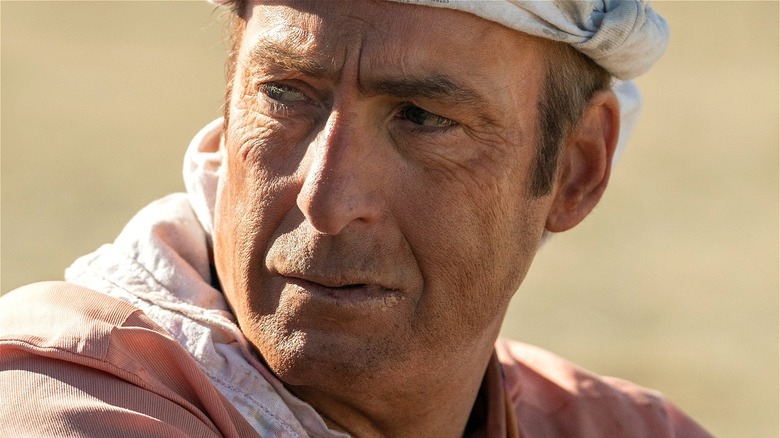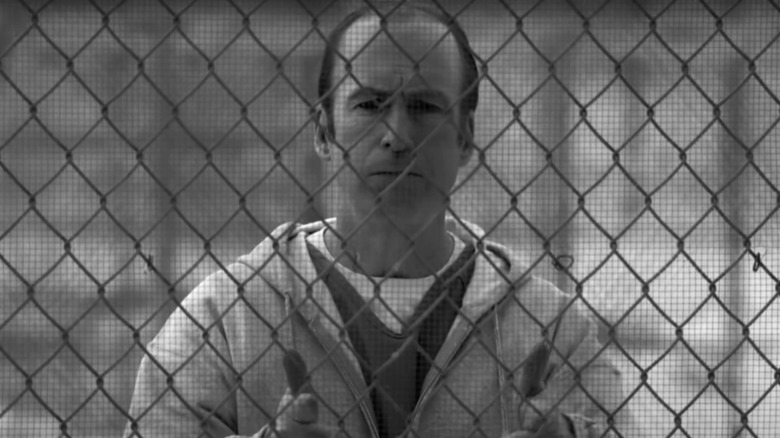Better Call Saul's Ending Was Much Different From Breaking Bad. Here's Why
Spoilers for the series finale of "Better Call Saul."
"Breaking Bad" is a show that isn't afraid to show what happens when a mild-mannered chemistry teacher is forced to make an increasing amount of bad decisions. From the very onset of the series, main character Walter White (Bryan Cranston) receives a terminal cancer diagnosis, and he realizes that his family will be left with nothing. He decides to team up with a local scamp known as Jesse Pinkman (Aaron Paul) and brew potent and illegal methamphetamine. However, his acumen soon leads to a sprawling and profitable empire that sees him not only lie to the ones he loves but also commit a series of murders, and the show ends with a bloody affair that sees Walter die on his own terms.
"Better Call Saul" manages to be both a sequel and a prequel to "Breaking Bad." Following the character of Saul Goodman (Bob Odenkirk) from "Breaking Bad," it is revealed that his real name is Jimmy McGill and that he has an entire retinue of personas and nicknames that allow him to skirt the law or swindle gullible individuals. Though Jimmy's ascension to Saul mirrors the rise and fall of Walter, and both eventually answer for their actions, it seems as if the ending to Jimmy's story is leaps and bounds different than the bombastic finale of "Breaking Bad." But why?
The endings are different because Jimmy and Walter are different
In an interview with The Hollywood Reporter, series co-creator Peter Gould said that the stakes of "Breaking Bad" were established fairly early on and caused by Walter's cancer. Walter is working on borrowed time, and Gould told an anecdote about one of his friends who always asked if Walter was going to die in "Breaking Bad" before the series concluded. He worried about Walter receiving some miracle cure, which would have completely undermined the character's progression. Gould then went on to explain that even though Walter is eventually despised by the community and his family for his actions, he achieves the goals he set out to do, leaving his family with enough money to survive and die on his own terms.
Gould then brought up the ending of "Better Call Saul" and said that Jimmy McGill is on a different path in life. Where Walter has a very clear objective in mind, Jimmy is more or less searching for meaning in his life. On account of this, Gould felt like Jimmy's ending should be thematically different from Walter's, and he added, "We did that ending already on 'Breaking Bad.' We did the big, bloody explosion that was the end of 'Breaking Bad.' Walt was a guy who dealt death to people. He ultimately was picking up guns and shooting them. Saul never picks up a gun in the whole run of the show. His ending is not going to be violent in the same way. He's a man of words, so of course the ending is gonna have words." Considering these comments, it seems the different endings stem from the individual arcs, and since Jimmy is a smooth talker rather than a gunslinger, his conclusion lacks physical violence.

